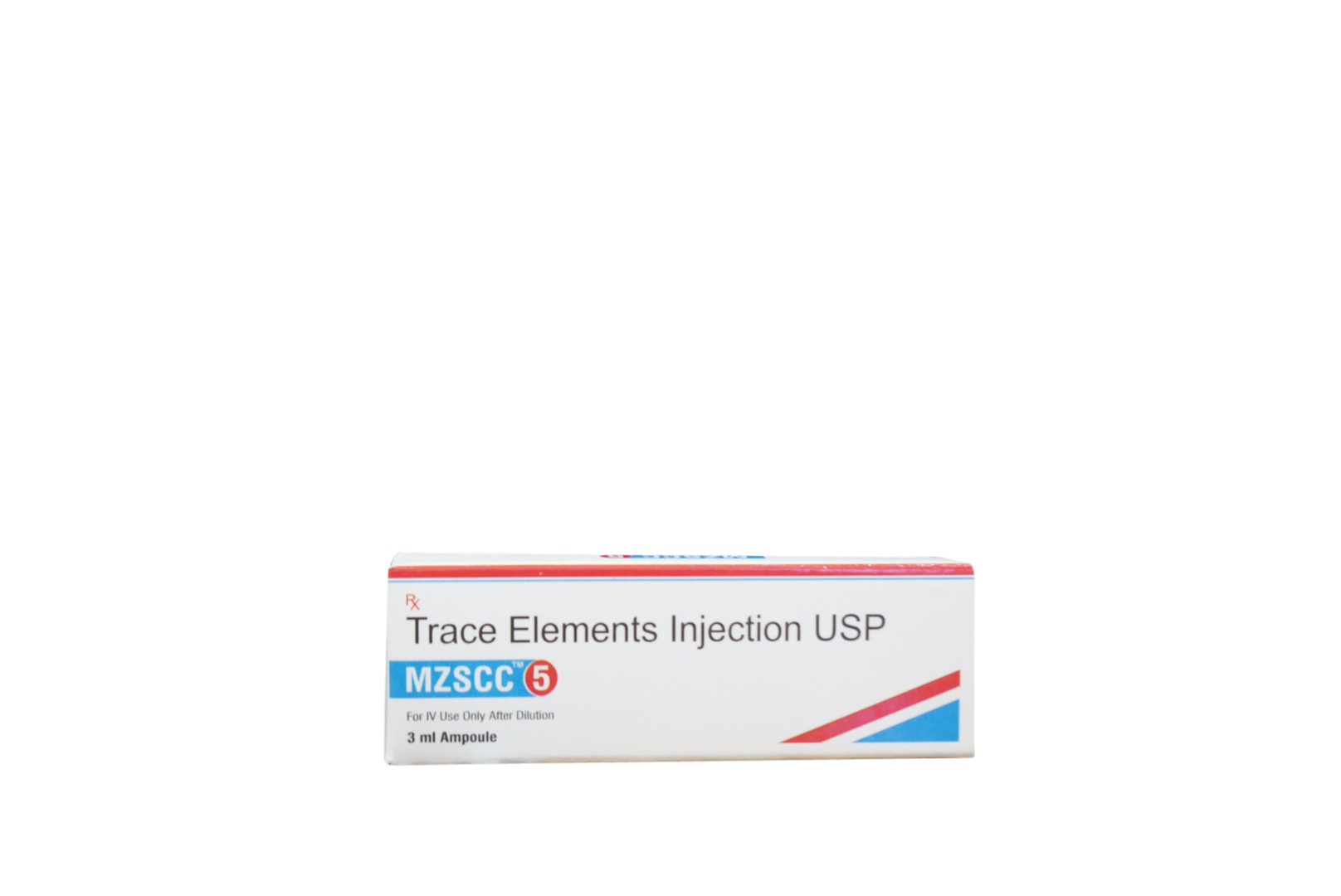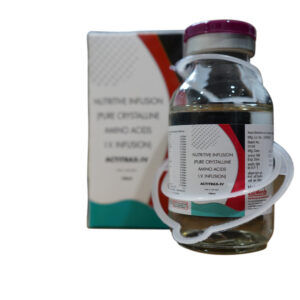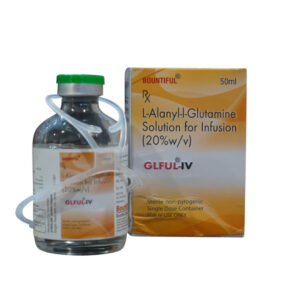MZSCC-5
Trace Element Injection (3ml)
ZINC has been identified as a cofactor for over 70 different enzymes, including carbonic anhydrase, alkaline phosphatase, lactic dehydrogenase and both RNA and DNA polymerase. Zinc facilitates wound healing, helps maintain normal growth rates, normal skin hydration and senses of taste and smell.
Providing zinc during TPN prevents the development of the following deficiency symptoms: Parakeratosis, hypogeusia, anorexia, dysosmia, geophagia, hypogonadism, growth retardation and hepatosplenomegaly. At plasma levels below 20 mcg zinc/100 mL, dermatitis followed by alopecia has been reported for TPN patients.
COPPER is essential as a cofactor for serum ceruloplasmin, an oxidase necessary for the proper formation of the iron carrier protein, transferrin. Copper also helps maintain normal rates of red and white blood cell formation. Scorbutic-type bone changes seen in infants fed exclusively with copper-poor cow’s milk are believed due to decreased activity of ascorbate oxidase, a cuproenzyme.
Providing copper during TPN prevents the development of the following deficiency symptoms: leukopenia, neutropenia, anemia, depressed ceruloplasmin levels, impaired transferring formation, and secondary iron deficiency.
MANGANESE is an activator for enzymes such as polysaccharide polymerase, liver arginase, cholinesterase, and pyruvate carboxylase.
Providing manganese during TPN prevents the development of the following deficiency symptoms: nausea and vomiting, weight loss, dermatitis, and changes in the growth and color of hair.
CHROMIUM (trivalent) is part of the glucose tolerance factor, an activator of insulin-mediated reactions. Chromium helps to maintain normal glucose metabolism and peripheral nerve function.




Reviews
There are no reviews yet.